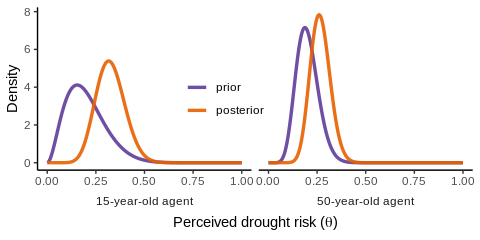
The dynamics of risk perception in a Mediterranean agroecosystem
Abstract
Small-scale agriculturalists in the Mediterranean Basin rely on multiple strategies including diversification, intensification, and storage to maintain a stable food supply in the face of environmental uncertainty. Each of these strategies requires farmers to make specific resource allocation decisions in response to environmental risks and is thus sensitive to variability in both the spatiotemporal pattern of risk and the ability of farmers to perceive that pattern. In this chapter, I present a simple agent-based model of a Mediterranean agroecosystem. By driving the model with realistic environmental dynamics derived from simulations of mid-Holocene Mediterranean climate, and by allowing the psychology of risk perception to vary among individual farmers, I explore the hidden vulnerabilities of traditional risk-management strategies to periods of rapid climate change. I show that even when farmers are able to manage risk ‘optimally’ in light of past experience, unanticipated changes in the spatiotemporal pattern of rainfall can still lead to major food shortfalls.